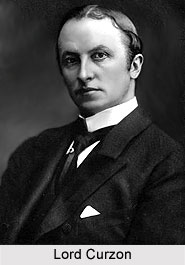 Welby Commission was a significant delegation to the consolidation of British India, thus trying to make the mixed population more concerned towards their monetary expenditures. Towards achieving that goal, in May 1895, under the watchful eyes of the Secretary of State for India, a Royal Commission began its examination of military and civil expenditures incurred. Welby Commission also had plans to look into the allocation of those charges between the Government of Great Britain and the Government of India. The Commission`s membership included: Lord Welby (1832-1915), named the Chairman, Lord Curzon (1859-1925), Leonard Courtney and T. R. Buchanan as Parliamentary representatives and William Wedderburn 1838-1918), Dadabhai Naoroji (1825-1917) and William S. Caine (1842-1903) as representatives of Indian interests. The latter members subsequently filed a minority report.
Welby Commission was a significant delegation to the consolidation of British India, thus trying to make the mixed population more concerned towards their monetary expenditures. Towards achieving that goal, in May 1895, under the watchful eyes of the Secretary of State for India, a Royal Commission began its examination of military and civil expenditures incurred. Welby Commission also had plans to look into the allocation of those charges between the Government of Great Britain and the Government of India. The Commission`s membership included: Lord Welby (1832-1915), named the Chairman, Lord Curzon (1859-1925), Leonard Courtney and T. R. Buchanan as Parliamentary representatives and William Wedderburn 1838-1918), Dadabhai Naoroji (1825-1917) and William S. Caine (1842-1903) as representatives of Indian interests. The latter members subsequently filed a minority report.
During the year of 1900, the Commission`s final report appeared and called for the House of Commons to ensure impartiality of financial arrangements. English costs were not be relieved at the expense of Indian revenues. India, as a member of the British Empire, was to be prepared to provide support. The India Office was also mandatory to be consulted regarding charges affecting India and that India`s payments to England should be tied to a fixed exchange rate.
This article is a stub. You can enrich by adding more information to it. Send your Write Up to content@indianetzone.com



















